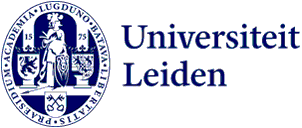
Minister Dijkgraaf comes to Leiden University to discuss the impact of the Israel-Hamas war
Minister Robbert Dijkgraaf (Education, Culture and Science) spoke with lecturers and students from Leiden University at Campus The Hague on 27 October about the impact of the Israel-Hamas war. He wanted to know how the conflict was affecting the academic community. Lecturers and students shared their feelings and experiences in a very open conversation.
The Israel-Hamas war has affected lives all around the world and is therefore being felt within the Leiden University community too, Rector Magnificus Hester Bijl explained at the start. Some lecturers and students are personally involved because they come from the region; others feel strong emotions at times. Like Dijkgraaf, Bijl was keen to hear how students and lecturers are experiencing these events and how the university can help its community.
Lecturers need guidance
There appeared to be a great need among lecturers for more information on how to deal with the consequences of the conflict in class. How can you address it appropriately and how do you discuss it with students without getting into an emotional debate? Experienced lecturers said that they too find this really difficult. Several lecturers expressed an interest in sharing best practices with their colleagues. They also thought it would be good to receive guidance from the university with both background information and tips on navigating sensitive topics in the classroom. This would make them better equipped for dealing with such issues in class.
Guidance for lecturers is currently being developed and will be issued soon.
-

Minister Dijkgraaf spoke to students and lecturers about the Israel-Hamas war. -

Students hope the university will organise meetings to start a dialogue on the war. -

There is a great need among lecturers for more information on how to deal with the Israel-Hamas war in class.
Safety and information
What students mainly need is to feel safe and to know where they can turn with questions, the discussion revealed. One student said that she and many other students have mental health problems as a result of the war. Israeli and Jewish students are worried about family and friends in the region. Students with personal ties to Palestine or the Middle East say that they in turn feel unsafe because they feel they have to defend themselves and explain their position on Hamas. Neither group feels safe all the time at the university and some students are reluctant to come to the campus at all.
Difficult to discuss
Students with different opinions and backgrounds find it difficult to connect for a good conversation, the discussion with the minister revealed. And that is a shame because this can actually make a big difference, said two students present. They both feel involved in the conflict and got talking after a recent meeting on the war that was organised by their degree programme. The conversation went on for four hours and was difficult at first, they explained, but was good nonetheless because it helped them understand each other better. More students should have such a conversation, said the two, but there is no platform at present that would facilitate this. They hope the university will hold regular meetings to get such dialogues going. This may help counter the current polarisation in the community, they concluded.
Keep talking
Minister Dijkgraaf said at the end of the meeting that he had ‘a lot of homework’ to do and was very grateful to the participants for this. Hester Bijl said that the university will look into how it can help students and lecturers as best it can within the context of the current conflict. ‘Let’s keep on talking to each other in any case’, was the conclusion of all the participants afterwards.
Photos: Marc de Haan
